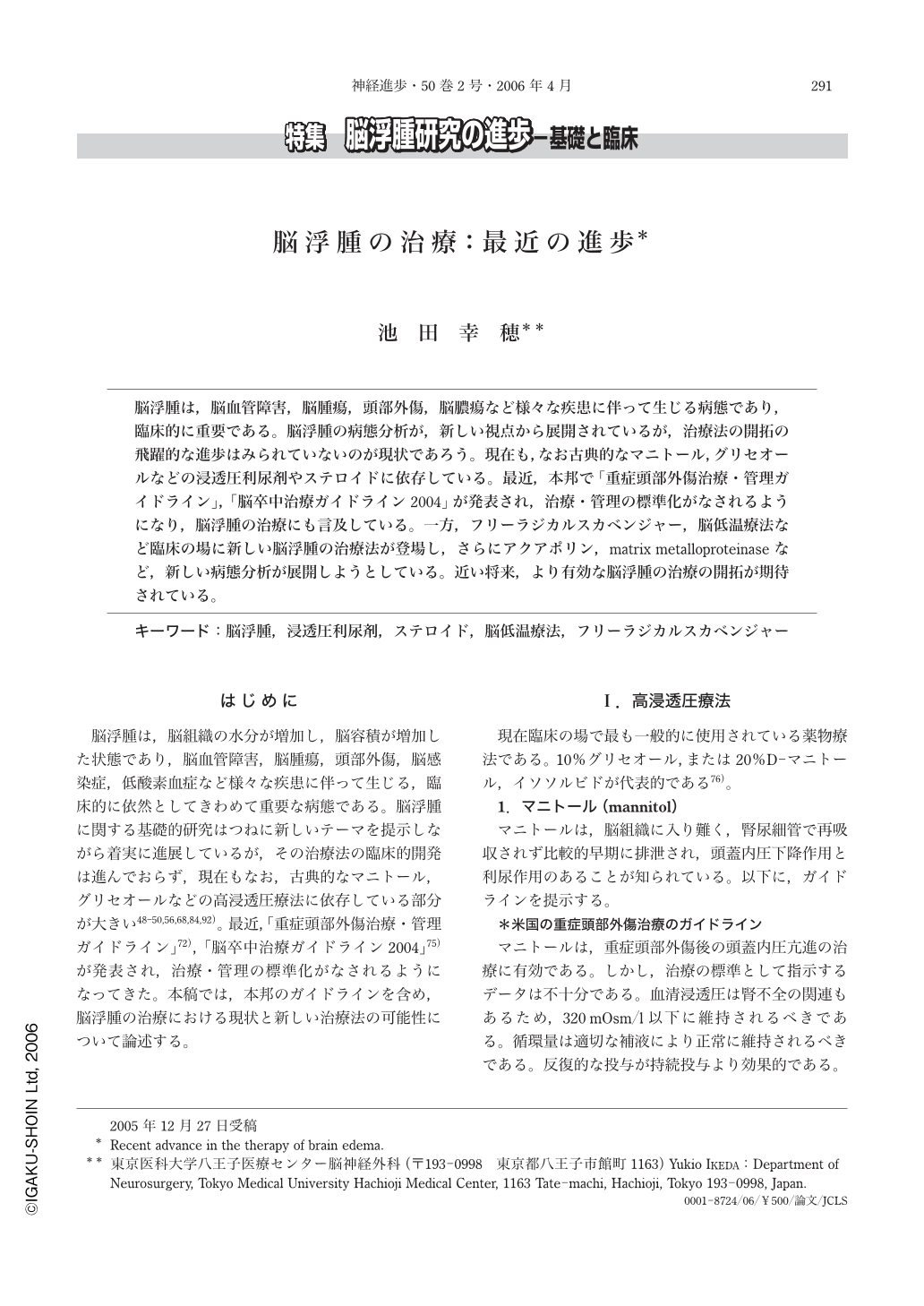Japanese
English
- 有料閲覧
- Abstract 文献概要
- 1ページ目 Look Inside
- 参考文献 Reference
脳浮腫は,脳血管障害,脳腫瘍,頭部外傷,脳膿瘍など様々な疾患に伴って生じる病態であり,臨床的に重要である。脳浮腫の病態分析が,新しい視点から展開されているが,治療法の開拓の飛躍的な進歩はみられていないのが現状であろう。現在も,なお古典的なマニトール,グリセオールなどの浸透圧利尿剤やステロイドに依存している。最近,本邦で「重症頭部外傷治療・管理ガイドライン」,「脳卒中治療ガイドライン2004」が発表され,治療・管理の標準化がなされるようになり,脳浮腫の治療にも言及している。一方,フリーラジカルスカベンジャー,脳低温療法など臨床の場に新しい脳浮腫の治療法が登場し,さらにアクアポリン,matrix metalloproteinaseなど,新しい病態分析が展開しようとしている。近い将来,より有効な脳浮腫の治療の開拓が期待されている。
The pathophysiologic mechanisms of brain edema, defined as an abnormal accumulation of fluid associated with volumetric enlargement of the brain, are complicated and multifactorial. Brain edema is still a serious complication of cerebrovascular disease, brain tumor, head injury, brain abscess and hypoxic injury. Therapeutic options include hyperosmolar solutions such as mannitol, and glycerol, hypertonic solutions, diuretics and steroids. The treatment of peritumoral edema with steroids provides the most consistently beneficial effects. Recently free radical scavengers and brain hypothermia have received much attention in neuroprotective strategy for brain injury and brain edema in clinical practice. Active research into aquaporin and matrix metalloproteinases(MMP)may produce novel therapeutic targets to decrease brain edema. Future research in brain edema biochemical mediators and optimal combinations of therapeutic regimens will be expected to improve management of patients with brain edema.

Copyright © 2006, Igaku-Shoin Ltd. All rights reserved.


